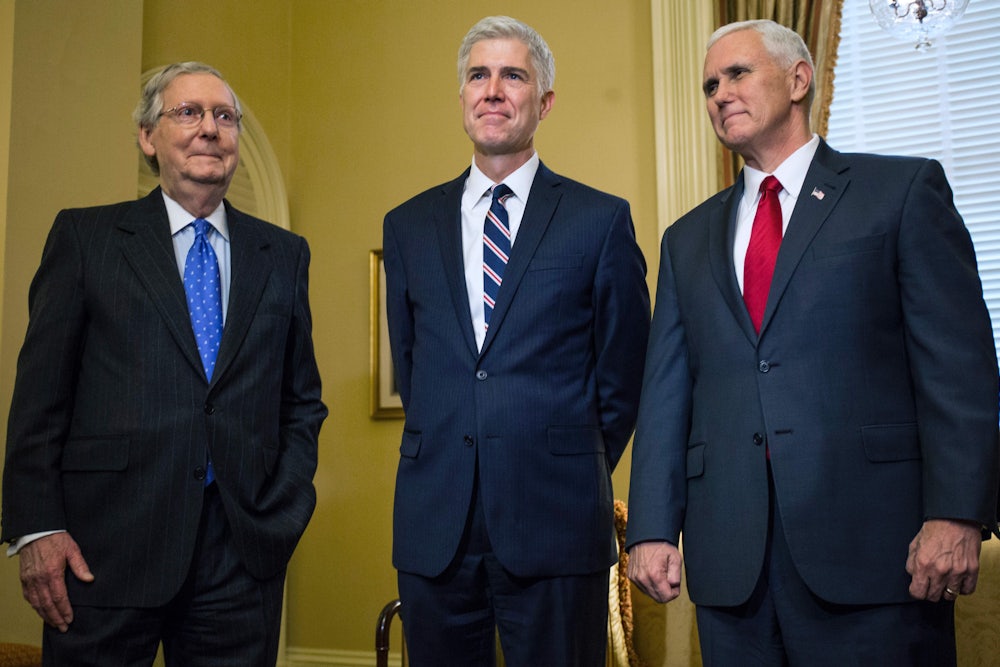Democrats now have the 41 votes needed to filibuster the confirmation of Donald Trump’s Supreme Court nominee Neil Gorsuch. (Only four of the 48 senators in the Democratic caucus have so far said that they will not join in the filibuster.)
Mitch McConnell will now have to decide whether to use the “nuclear option” and permanently change the Senate rules so that only a straight 51-vote majority is needed to advance a Supreme Court nominee.
The downside of the nuclear option is that Gorsuch will get through and Democrats won’t be able to block a future Trump nominee, in the event that another Supreme Court seat opens up. But McConnell was never going to let Democrats block a second nominee anyway. The upside is that, if Democrats win back the majority in the future, it will be easier for them to confirm their own picks.
Another downside is that yet another Senate norm will have bit the dust. But the norms surrounding Supreme Court nominees were obliterated when Republicans refused to even hold hearings for Barack Obama’s pick, Merrick Garland. Letting Gorsuch go to cloture would have essentially rewarded the GOP for making the Supreme Court steal of the century. As Senator Patrick Leahy put it in his decision to join the filibuster, “I cannot vote solely to protect an institution when the rights of hard-working Americans are at risk. Because I fear that the Senate I would be defending no longer exists.”
Chuck Schumer and company have realized that they are damned either way. They are right to take a stand: If McConnell chooses to go nuclear, at least the blood will be on the hands of Republicans.
